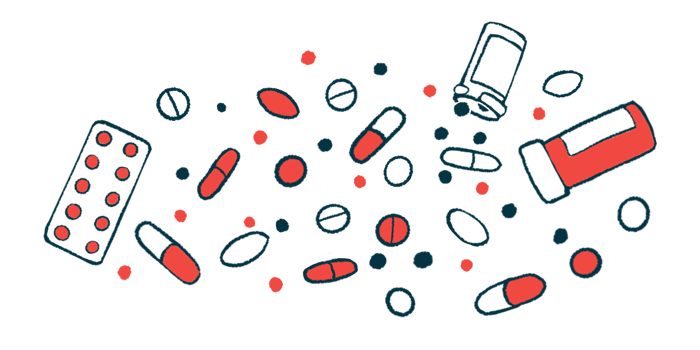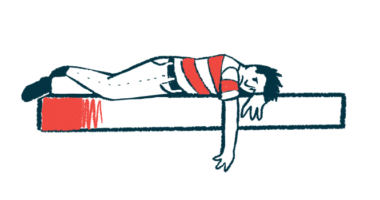Teenager’s Response Supports Pitolisant, Now in Phase 2 Trial, in Easing PWS

Pitolisant, a treatment for narcolepsy, should be considered for people with Prader-Willi syndrome (PWS) whose response to psychotropic medications is less than optimal, a case report of a 15-year-old patient suggests.
“Pitolisant has the potential to improve many symptoms in patients with Prader-Willi syndrome and it appears to be well tolerated with minimal side effects observe,” its scientists wrote.
The report, “Pitolisant in an Adolescent with Prader-Willi Syndrome,” was published in The Journal of Pediatric Pharmacology and Therapeutics.
People living with PWS often take antidepressants, antipsychotics, and other psychotropic medications to treat the syndrome’s various psychiatric symptoms, which include mood disorders and obsessive-compulsive behaviors, as well as excessive daytime sleepiness.
“Currently,” the researchers wrote, “antidepressants and antipsychotics are among the most commonly prescribed psychotropic medications for patients with PWS.”
But “evidence supporting efficacy of these medications in PWS is weak, particularly as monotherapy,” they added. “As a result, individuals often are treated with several psychotropic medications in an effort to manage ongoing symptoms,” raising “the risk for drug-associated adverse effects.”
Pitolisant, sold under the brand name Wakix by Harmony Biosciences, is an approved medication in the U.S. and Europe to treat excessive daytime sleepiness in adults with narcolepsy, a chronic sleep disorder. It stimulates the release of histamine throughout the central nervous system (CNS) — the brain and spinal cord — by its action on histamine H3 receptors.
Because these receptors appear to affect neuropsychiatric symptoms relevant to PWS, such as sleep maintenance, feeding and appetite, cognition, and attention, pitolisant could prove a useful treatment for these patients, the scientists wrote.
A Phase 2 trial of pitolisant (NCT04257929) in treating excessive daytime sleepiness in PWS patients, ages 6 to 65, is currently recruiting at locations across the U.S. Harmony Biosciences is the trial’s sponsor.
In the case report, clinicians in Colorado were treating a 15-year-old girl with PWS, obsessive-compulsive disorder, autism spectrum disorder, mild intellectual disability, hypothyroidism (an underactive thyroid gland), and scoliosis or sideways curvature of the spine. She was receiving therapies for signs of irritability, anxiety, aggression, rigid thinking, and EDS, and had taken a variety of psychotropic medications since age 11.
Her family were interested in testing pitolisant, and obtained the medication through an expanded access program.
The girl’s mother reported seeing her daughter more easily complete academic tasks within 10 days of starting treatment. She also needed less assistance in performing routine tasks at home, something her mother described as having been needed for years.
Although she continued to repeat or prolong actions, and to interact rigidly with others, she had fewer behavioral outbursts.
The girl’s dose was increased from 4.5 mg to 9 mg daily after two months of treatment, and although symptoms persisted, she began to gain muscle tone and to walk more quickly. She was less sleepy during daytime hours, more alert and engaged with others, and had fewer outbursts.
Over the course of a year, the girl’s dose increased to 36 mg daily, while her use of Lexapro (escitalopram) — given to treat depression and anxiety — was tapered until being discontinued.
Throughout this time, she continued to show improvements, while still struggling to complete schoolwork or answer questions, and staying rigid in her thinking and “insisting on sameness.” Her anxiety levels also did not ease. But she was more effectively reasoning through situations, less liable to show frustration or aggressive behaviors, and better able to sleep and focus.
She also showed improvement across several clinical rating scales, displaying less depression, irritability, lethargy, and hyperactivity.
The girl’s mother reported some potential side effects, such as increased sweating, drooling, and salivation, although these did not appear to increase with higher doses given. The girl’s body mass index, a measure of body fat, rose by 2% over the 12 months she was observed, despite concerns of weight gain. This change cannot be definitively linked to the medication, as natural factors such as puberty might be in play, the scientists said.
“Her current medication regimen consists of buspirone 5 mg twice daily, risperidone 0.125 mg twice daily, and pitolisant 36 mg daily, in addition to estradiol, growth hormone, and levothyroxine daily,” the report noted.
Given the complex nature of Prader-Willi syndrome and the “complex combination of neuropsychiatric symptoms among pediatric patients with PWS, pitolisant’s unique mechanism of action … may play a unique role in the management of PWS,” the investigators concluded, favoring a careful study of its benefits and safety in a clinical trial.
Pitolisant, they added, “may reduce the need for concomitant psychotropic medications, thereby reducing the risk for long-term adverse effects (e.g., weight gain, type 2 diabetes associated with atypical antipsychotics), improving both neuropsychiatric and metabolic outcomes for patients with PWS.”







